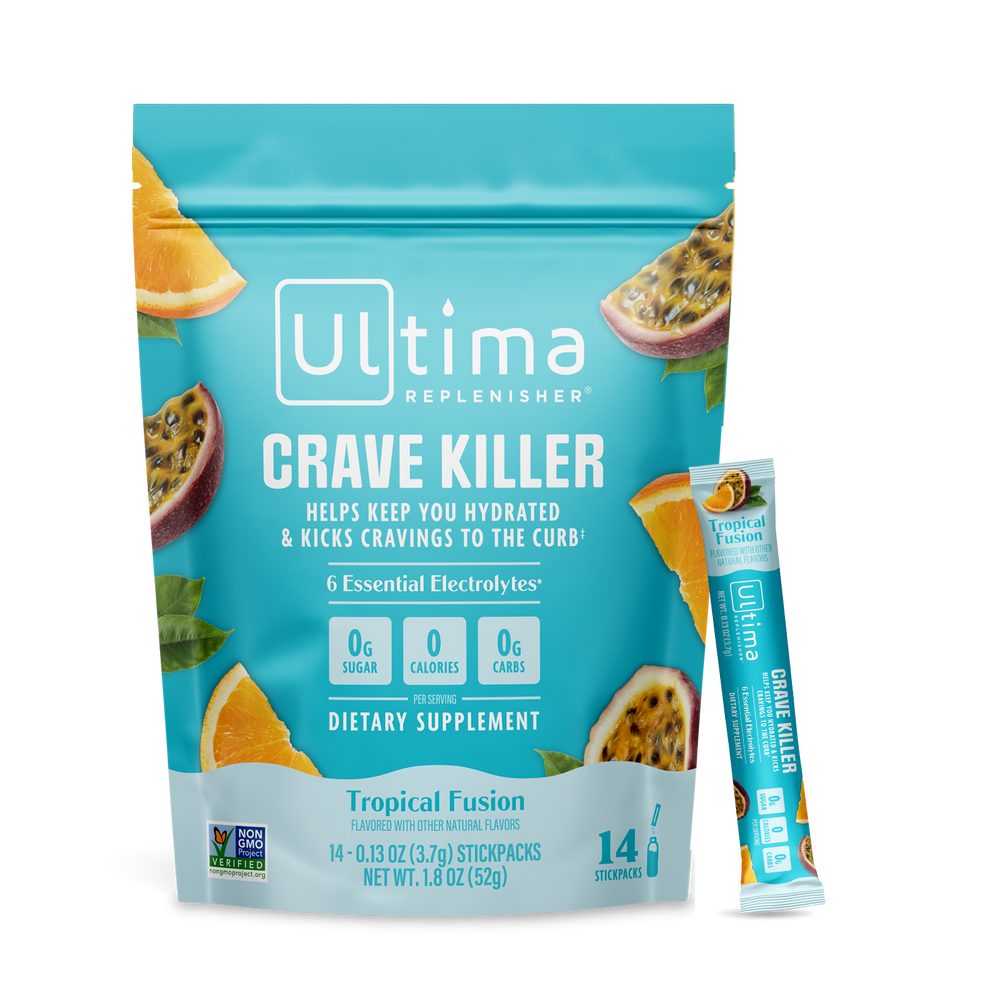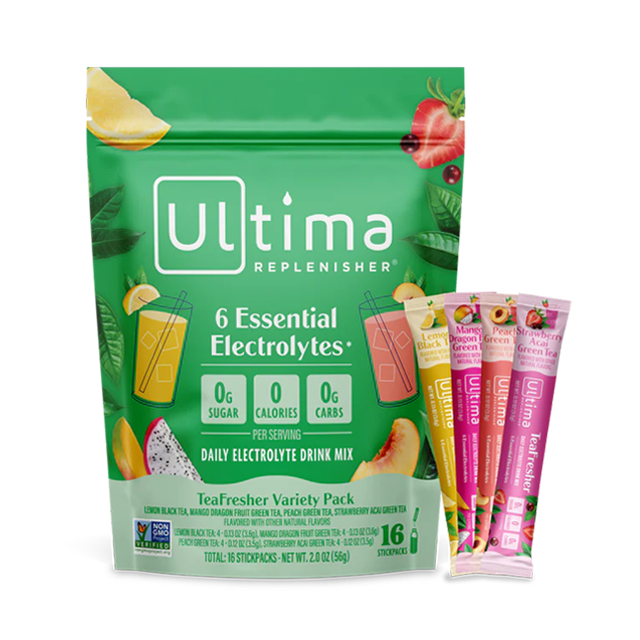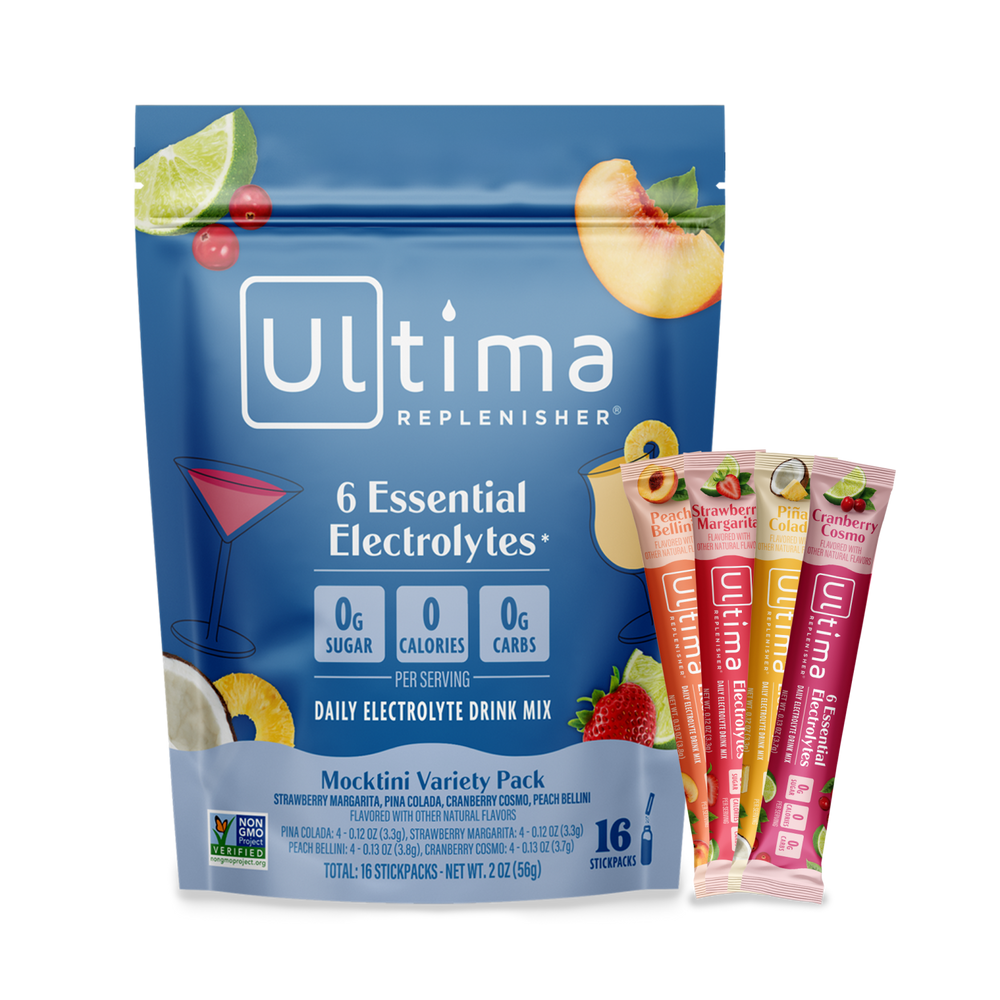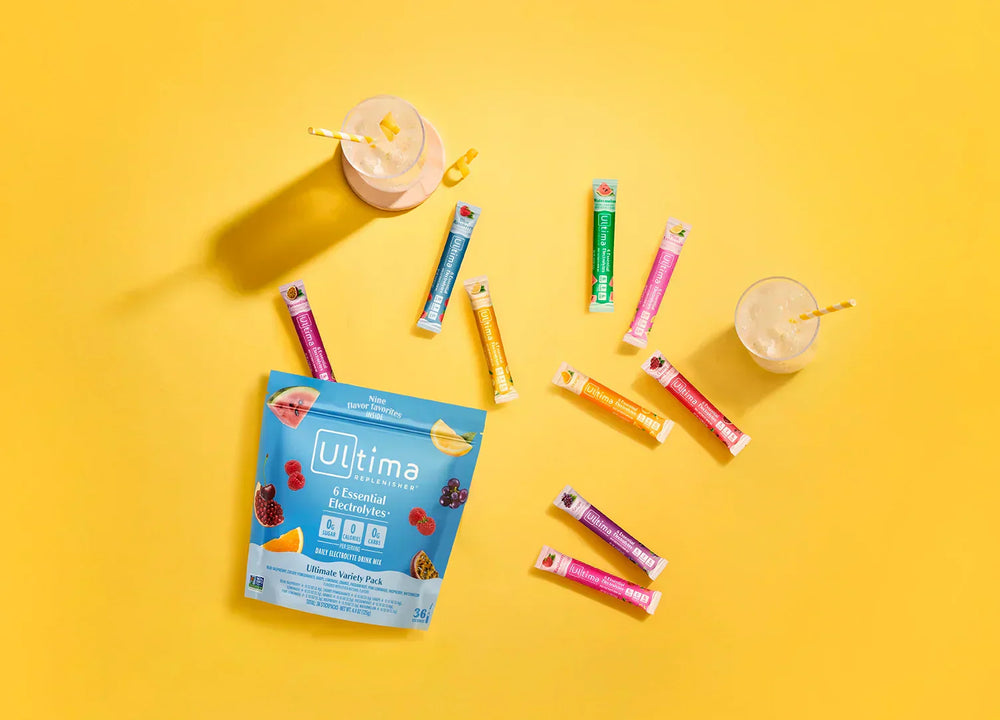
Keto Fasting: How to Keep Your Body Nourished During Intermittent Fasting
Intermittent fasting has been becoming more popular recently. Having regular periods of eating and not eating can help some people manage weight and feel more clear-headed. According to Johns Hopkins Medicine, fasting for a certain number of hours each day or eating just one meal a couple days a week may also have other health benefits.
Fasting While on Keto
If you follow a ketogenic or low-carb diet plan, intermittent fasting can help get you through a weight loss plateau, but it also comes with some risks. Fasting on a keto diet, which already can make consuming enough electrolytes challenging, can leave you more depleted. Symptoms of electrolyte deficiency might show as fatigue, difficulty concentrating, muscle cramps and/or an irregular heartbeat.
One way to help prevent electrolyte deficiencies during intermittent fasting is to include Ultima Replenisher® mixes in your fasting plan. Our sugar-free electrolyte powder mixes work to restore your electrolytes from fasting, and they do so without added sugar, calories or carbs.
Fasting on keto if you have diabetes
If you have an existing health condition, you should consult your doctor before fasting to make sure you can do so safely. Even if you don’t have any health conditions, talking to a doctor or nutritionist about the safest way for you to fast is a smart move.
If you have diabetes, you will want to take extra precautions because fasting will affect your blood sugar levels. If you take medications for diabetes, be aware that restricting carbohydrates and fasting can cause your blood glucose levels to drop too low. It’s important to monitor your blood glucose levels more frequently than you normally would. Your doctor may be able to adjust your medications or give you other advice that would allow you to fast, but you should definitely check with them first.
How to Keep Your Body Nourished During Intermittent Fasting
If you plan on intermittent fasting, it’s important you take steps to hydrate appropriately, protect your health and prevent unwanted side effects while you go without food. Follow these five tips based on Cleveland Clinic’s recommendations:
1. Ease into fasting.
If you are new to fasting, don’t abruptly stop eating. Phase fasting into your diet plan by eating less for a few days beforehand. Make sure you’re eating healthier so that you come to the starting point of a fast with the nutrients you need onboard. This can help make your fast easier. If your goal is to fast for 16 hours, do a shorter trial fast first of maybe 8 or 10 hours.
There are different methods of intermittent fasting, so find one that works best for you. For example, some people start by just skipping one meal as a trial run. Some people choose a fasting plan that is one meal a day for a certain number of days. Some people take a 5:2 approach, eating normally for five days and severely limiting calories for two.
Whatever you choose, have a plan for easing into your fast so that you are more likely to set yourself up for success.
2. Drink plenty of water.
Drinking water can help stem food cravings as well as maintain your energy levels. Water is important to consume during a fast (if not fasting where religious requirements forbid water) to avoid dehydration and keep flushing toxins from your body.
While it’s already important to replenish electrolytes on a keto diet, fasting on keto makes it even more crucial to replace any lost sodium, magnesium, potassium and other electrolytes. You’re not getting any vital minerals through food, so you need other sources of nutrients and electrolytes. By keeping Ultima Replenisher stickpacks with you, you can easily give your water an electrolyte boost to help limit or even avoid headaches, muscle cramps, and other symptoms due to not eating. And, if you struggle to drink a sufficient amount of water each day, the delicious flavors available also help!
3. Limit activity or exercise while fasting.
Save intense exercise for days where you are eating normally and not fasting. Especially when you don’t yet know how your body will react to fasting, you will want to save your energy for regular daily activities and then work in simple exercises—like for mobility, flexibility or mild cardio—if you have energy to spare. Remember, when fasting, you are not taking in enough calories needed to burn for moderate to intense exercise.
4. Make a plan with your doctor for taking your regular medications.
If you take medication regularly for any health condition, not just diabetes, be sure to talk to your doctor about how to take your medications during fasting and if fasting is safe for you. Some medications need to be taken with food or you may have unwanted side effects. Please, do not stop taking medications during a fast without your doctor’s approval.
5. Ease back into eating when the fast is done.
Whether you’ve been fasting for 16 hours or an entire day, when it’s time to break the fast, introduce calories again slowly instead of eating a large meal or binging a day’s worth of calories at once. Your body will adjust easier this way, and you are less likely to have symptoms from overeating, like a sharp increase and then crash of blood sugar, headaches, stomach aches or fatigue.
Stop Your Fast Early Upon Signs of Trouble
While fasting, especially if this is your first time, pay attention to how your body feels. Minor headaches, fatigue or dizziness may go away after drinking water with electrolytes, but anything that seems more severe or serious (e.g., fainting, nausea, vomiting) may be a sign you need to break your fast and call your doctor.
Fasting can be beneficial, but it's important to do it safely and in a way that supports your overall health and wellbeing.









